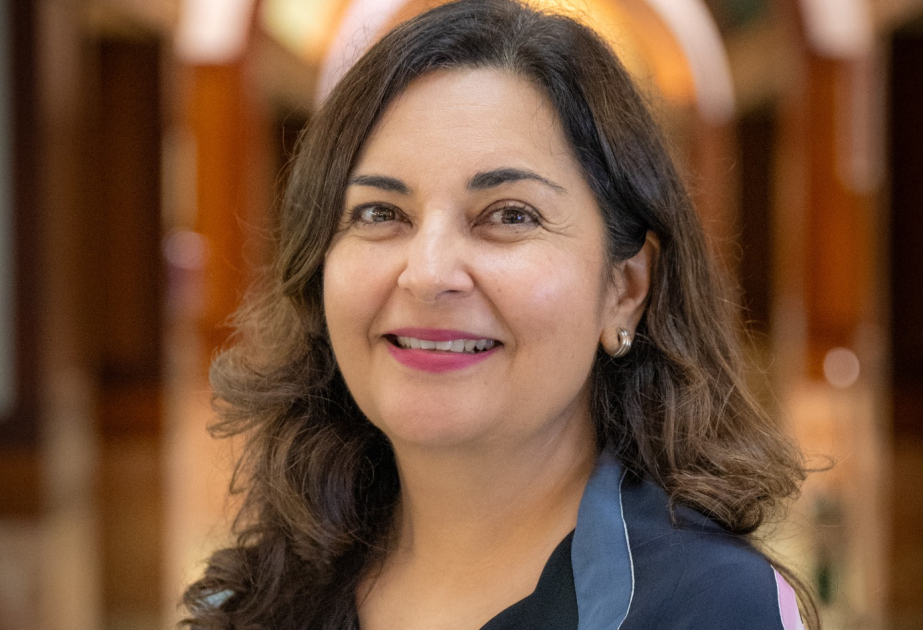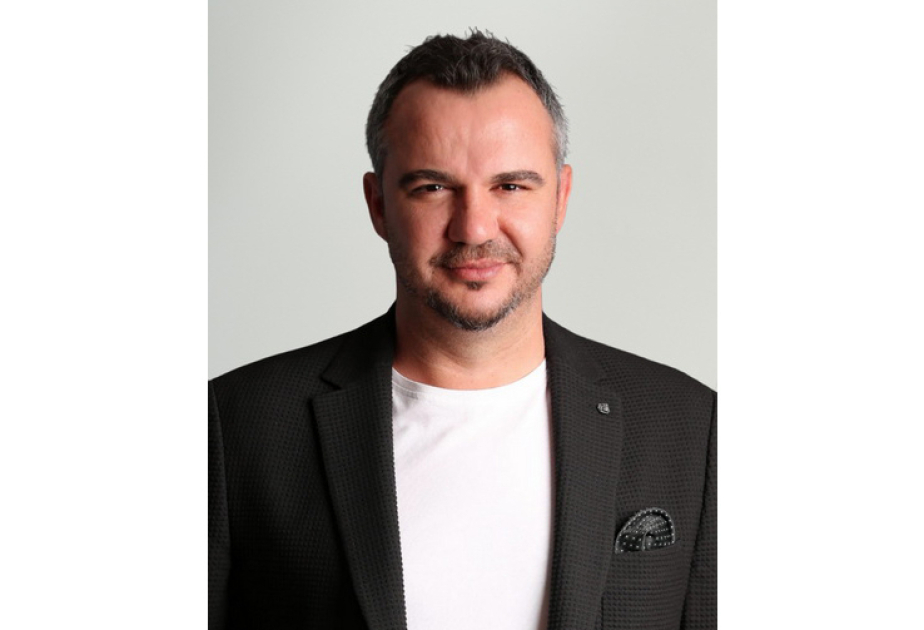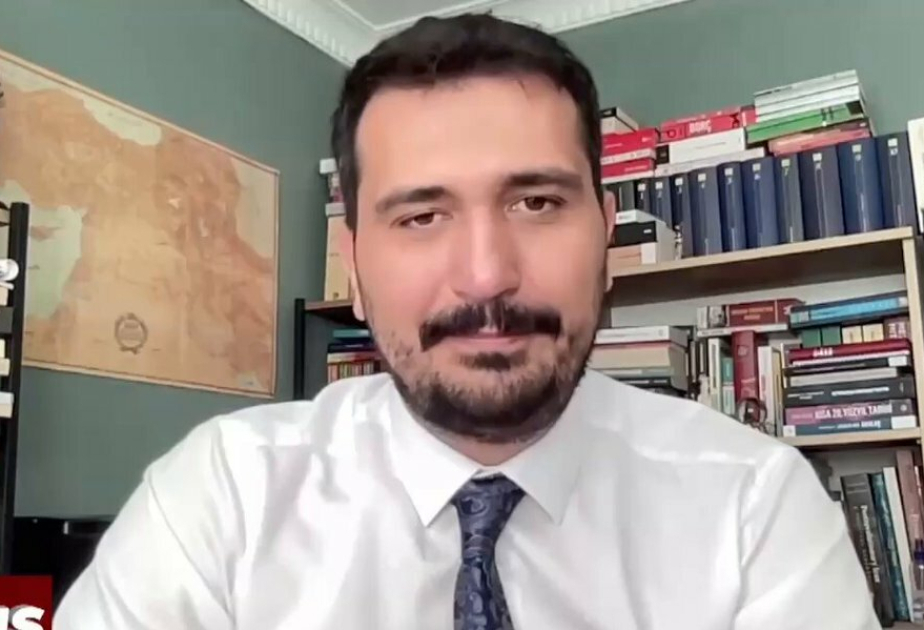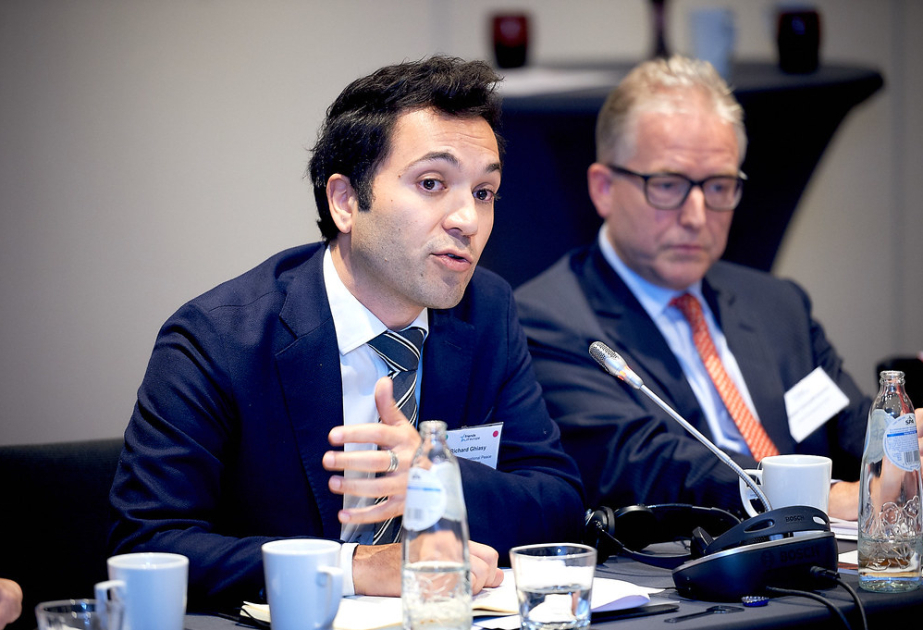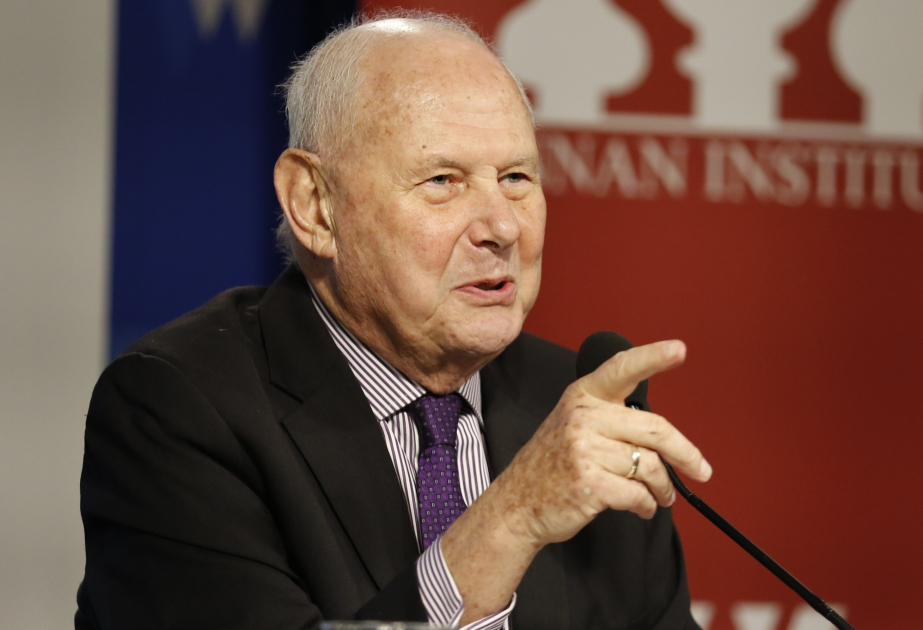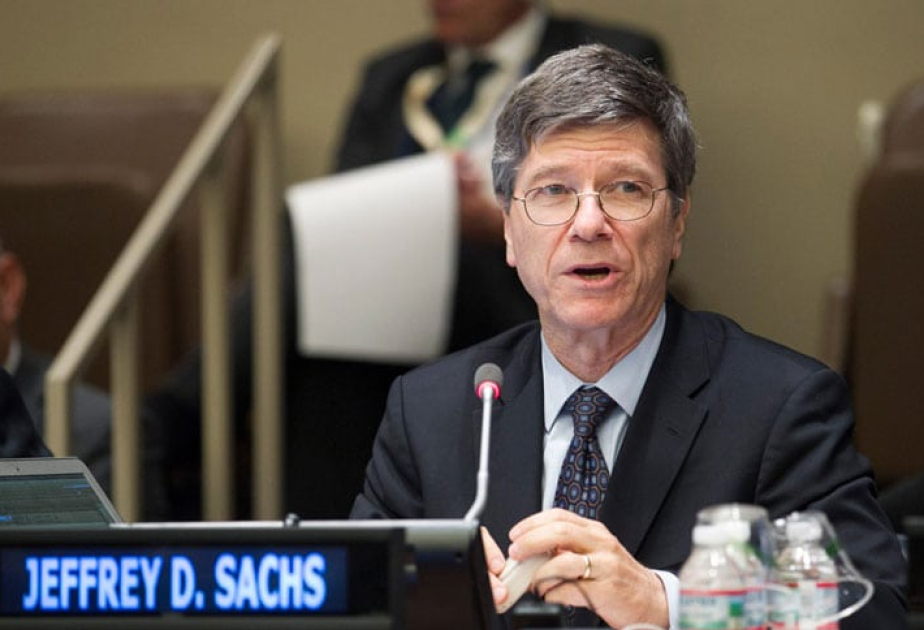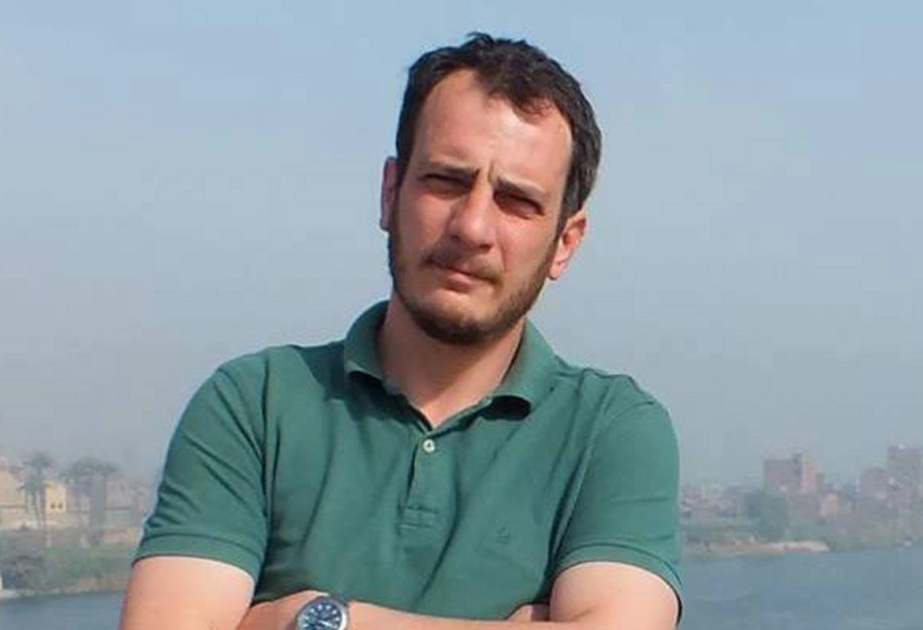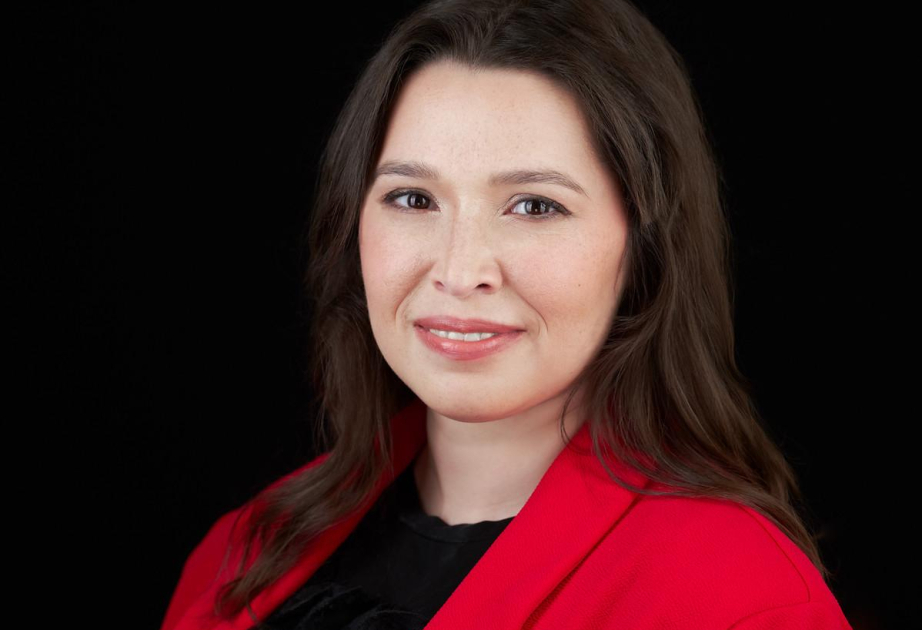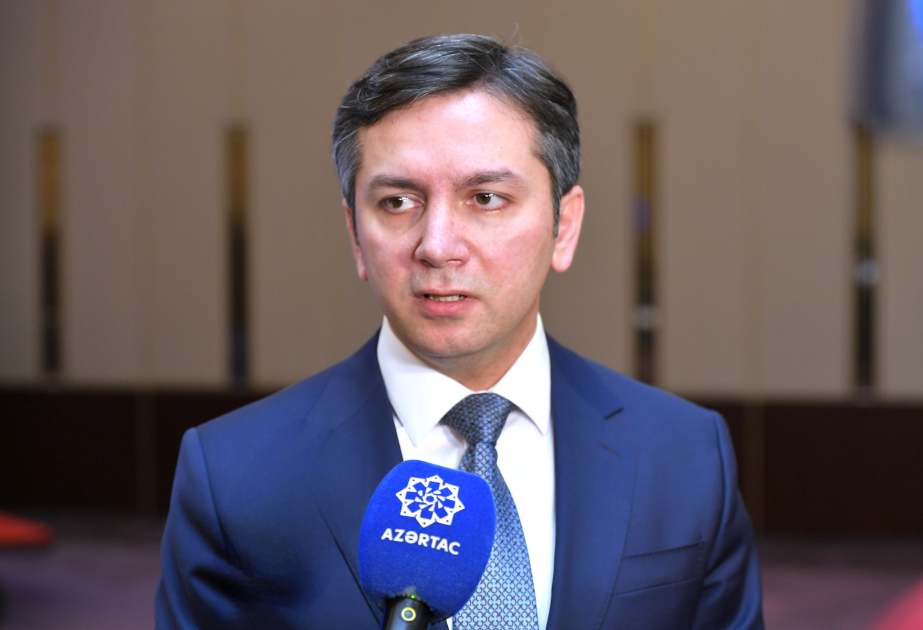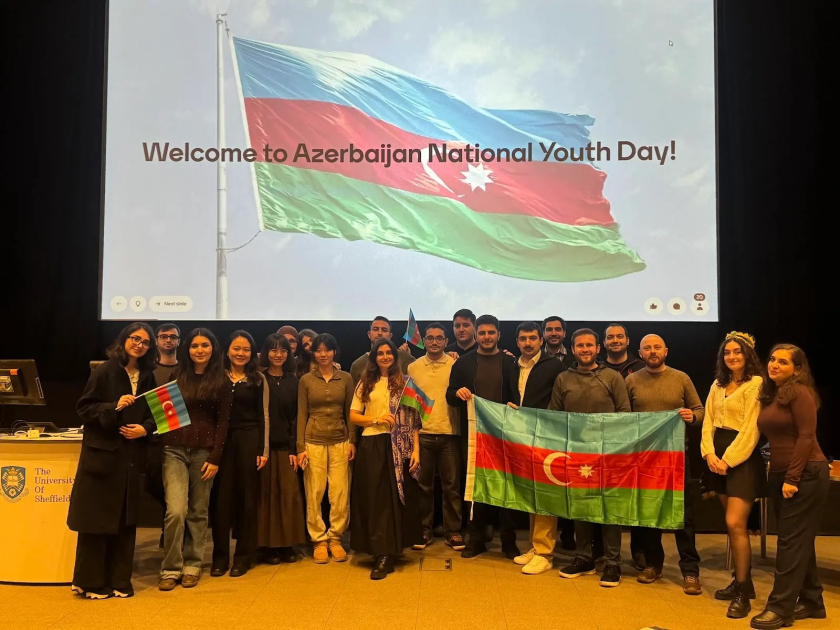ADB Azerbaijan Country Director Sunniya Durrani-Jamal gave an exclusive interview to the Azerbaijan State News Agency (AZERTAC).
- Could you briefly describe the role of the Asian Development Bank in infrastructure development in Azerbaijan?
- First of all, I would like to thank you for this interview today. It is great to have you at our Resident Mission in Baku.
As you know, Azerbaijan and Asian Development Bank (ADB) started the partnership in 1999. Since then, ADB has committed more than 5 billion US dollars to the country’s steadfast growth. A major part of this investment focused on the Government’s infrastructure priorities including energy, transport, water supply and sanitation and other urban services in various parts of the country. We have provided this support primarily to the public sector, but our private sector engagements are also gaining momentum, especially in the renewable energy sector.
ADB’s infrastructure projects in Azerbaijan have helped improving access to essential services, enhancing economic opportunities, and fostering social inclusion. By investing in infrastructure development, ADB also supported boosting Azerbaijan’s regional cooperation and integration.
- What key projects have been implemented in Azerbaijan with ADB support in recent years?
- Over the last 3 years, we have been actively supporting the country’s green energy agenda by co-financing landmark solar power plants. These include the 230MW Garadagh Solar Power plant, which was ADB’s first green energy project in Azerbaijan that became operational in Autumn 2023.
In November at COP29, we increased our investment in the renewable energy sector by partnering with Masdar and SOCAR Green. This partnership involved a $160 million deal, that includes up to $48 million for the Bilasuvar power plant and up to $33.5 million for the Neftchala power plant, funded through ADB’s ordinary capital resources. The Leading Asia’s Private Infrastructure Fund 2 (LEAP2) also contributed up to $46 million for Bilasuvar and up to $32 million for Neftchala, with both being administered by ADB.
We also provided 171.5 million US dollars for railway transport in 2024 which includes 131.5 million US dollars to improve a key railway line in Azerbaijan and 47 million US dollars to support to digitalization of key operations to enhance operational efficiency. Such investments in logistics are essential for increasing trade and competitiveness not only of Azerbaijan but also contribute to the development of regional transit corridors.
- What new areas of cooperation are planned between ADB and Azerbaijan in the near future?
- We are in the final stages of the new ADB Country Partnership Strategy (CPS) for Azerbaijan for 2025–2029, that has been developed in close coordination and discussions with the Government and the private sector.
Over the next 5 years, ADB will continue supporting the country in its green transition. We will also find ways to accelerate value addition and resilience of the economy. Building capabilities and supporting job creation are other areas of priority for us.
- What measures are being taken to support the private sector in Azerbaijan through ADB financing programs?
- ADB’s private sector operations are mainly in renewable energy generation, agriculture and financial services. We also have a Trade and Supply Chain Finance Program to support cross-border trade operations.
In 2023, we extended a $20 million loan to a local bank to finance small businesses led by women entrepreneurs and farmers, and onboarded two Azerbaijani banks to our trade and supply chain program.
Our investments in the 445 MW solar photovoltaic power plant in Bilasuvar and a 315 MW solar photovoltaic power plant in Neftchala are expected to triple the country’s solar energy capacity while reducing approximately 725,000 tons of CO2 emissions annually.
Last year, we continued our private sector operations in agriculture and food security by financing Araz Supermarket LLC’s modern retail expansion project. This investment also includes a technical assistance component which will build the capacity of smallholder fruit and vegetable farmers in climate-resilient farming.
We are following developments in public-private partnerships (PPP) opportunities in the country with interest. We have held a number of discussions with government and relevant agencies on several aspects of building PPPs across sectors.
- How does ADB assess Azerbaijan's potential in the field of "green" energy, and what projects are planned in this direction?
- ADB plays a crucial role in providing financing for climate projects across the region, including Azerbaijan. Through various funds and programs, ADB supports projects that reduce greenhouse gas emissions, promote energy efficiency, and enhance climate resilience.
Azerbaijan possesses significant potential in green energy, taking advantage of its favorable geographic conditions and abundant renewable energy sources, particularly solar and wind.
The government of Azerbaijan is also very determined in the steps it takes to expand renewable energy. This helps to build an enabling environment for more investments into this sector. In fact, the country is steadily moving towards its ambitious goal in diversifying its energy mix by increasing the share of renewable energy in its total electricity generation. By 2030, the country plans to generate 30% of its electricity from renewable sources.
We used cutting-edge technology in our floating solar pilot project at Boyukshor Lake that was inaugurated last summer. Floating solar power development can maximize land use and increase energy generation efficiency. However, this type of renewable initiatives may require some more tests and studies customized for each water reservoir, mainly focusing on factors such as location, weather and climate impacts and environmental concerns.
And as a trusted partner of Azerbaijan, ADB is ready to discuss possible support for further efforts in building more large-scale solar projects, developing offshore wind farms and exploring other opportunities to expand renewable energy generation.
- What steps are being taken to improve transport infrastructure within the framework of cooperation with ADB, especially in the context of the North-South corridor?
- The transport sector is one of the cornerstones of ADB-Azerbaijan partnership and we have invested more than 1.5 billion US dollars in improving the transport sector. ADB has been investing in road and railway infrastructure along the North–South and East–West corridors. These investments increase trade with Türkiye, Georgia, and Europe, expand the middle corridor between the People's Republic of China, Central Asia and Europe.
Under the Railway Sector Development Program, ADB focused on the rehabilitation of the 166 km Sumgayit-Yalama rail line, a key link within the Central Asia Regional Economic Cooperation (CAREC). This corridor is a key part of regional cooperation and integration for the country and it is well aligned with the transport strategy of the CAREC Program, which aims to contribute to regional economic development by improving rail and multimodal infrastructure, and commercializing and reforming railway operations.
Additionally, in line with the State Program for improving transport infrastructure in Baku and its adjacent areas for 2025-2030, we are currently analyzing transport infrastructure needs for the capital city of Baku. We have adopted a new Technical Assistance (TA) to evaluate physical and operational characteristics, technology options, financial analysis, and institutional arrangements to build green, smart and reliable mobility within Baku. Ultimately this study will help the government with sustainable mobility knowledge and enhanced network planning.
We are looking forward to meeting with the new management at Azerbaijan Transport and Communications Holding (AZCON) and understanding their priorities for transport and communications.
- How does ADB promote regional integration and cooperation in infrastructure development, what projects are being implemented within the framework of these initiatives? Does the bank support infrastructure development along the Middle Corridor, and what challenges does regional cooperation in infrastructure development face?
- ADB promotes regional integration and cooperation through research and analysis, infrastructure development, policy dialogue, and funding mechanisms. These efforts are primarily directed through regional cooperation frameworks, such as CAREC Program.
We have been involved in infrastructure development projects along the Middle Corridor (linking Asia to Europe through the Caspian Sea, Georgia, and Turkey). Key projects include the development of renewable energy plants, transport corridors and logistics infrastructure to improve the connectivity between Central Asia, the Caucasus, and Europe. ADB has funded road and rail network improvements, as well as border-crossing facilities, to enhance the efficiency and capacity of the Middle Corridor.
Currently we are working on a regional technical assistance (TA) for Azerbaijan, Kazakhstan and Uzbekistan, under the CAREC program for the Caspian Sea Green Energy Corridor Project. The Caspian undersea electricity cable crosses many borders, as well as the Caspian Sea. It involves a range of stakeholders and requires interconnection of the energy systems. The TA will support the project through data analysis, facilitating policy dialogue and knowledge sharing, assisting in the formation of a Special Purpose Vehicle (SPV) or Joint Venture (JV), developing legal and commercial frameworks and providing technical oversight and capacity building for country representatives.
Regional projects of such scale can be quite complex. Funding, climate change, regulatory frameworks, geopolitical and global financial uncertainties, environmental and social concerns are among prominent challenges that need to be addressed for such projects.
- How does ADB plan to support digital transformation and innovation in Azerbaijan?
- I am quite impressed with the speed with which Azerbaijan is embracing digitalization. Digitalization and innovation can support Azerbaijan’s economy by enhancing productivity, fostering entrepreneurship, improving public services, and enabling better market access. But it also requires supportive policies and infrastructure to maximize benefits.
I would like to mention two ADB projects in this regard. The first is our Digital Transformation Project to support Azerbaijan Railways (ADY) to improve operational and financial performance, reduce costs, enhance rail safety, and workforce efficiency. Undergoing a digital transformation process also requires human capital. Therefore, we are also supplementing this digital investment with technical assistance to build skills, share international best practices, and support knowledge of ADY staff involved in digital transformation.
The second is a tech start up project. ADB partnered with government agencies, local and international incubation centers and universities to foster development of local tech-startups. We conducted studies, organized startup competitions and knowledge sharing at the local, regional and international level. I am proud that ADB was able to support Azeri youth pursue their startup ideas on education, green economy, renewable energy, e-government and smart agriculture. These young entrepreneurs can help develop new product and services and propel the economy with practical, socially relevant and creative ideas.


